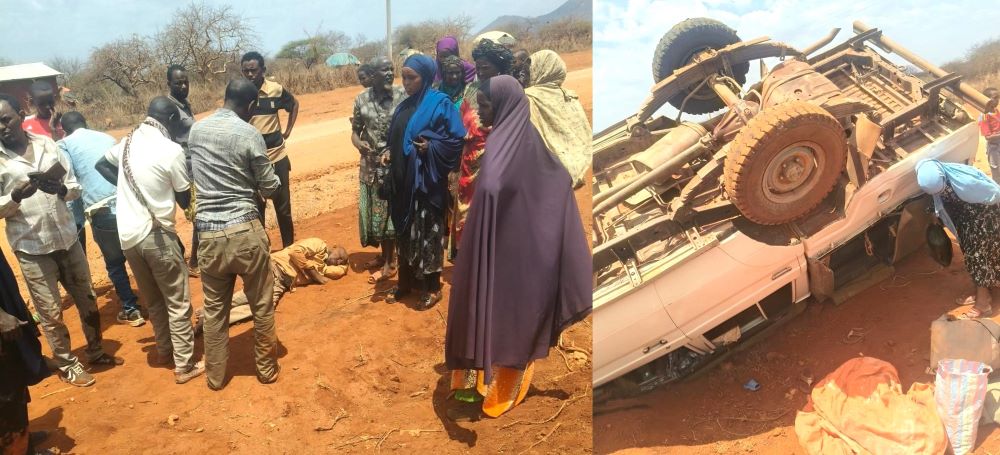The future of the young people in this country is apparently at risk. This is all thanks to the prevalence of irresponsible sexual behaviour that is leading to a high rate of HIV infections and teen pregnancies among the youth.
Health stakeholders in the country have raised the alarm over the bleak future of the youth amidst the rising number of new HIV infections, teen pregnancies and school dropouts, all linked to pervasive unprotected sexual behaviour among young people.
Recent statistics in Kenya reveal that at least six adolescents aged between 10 and 19 contract HIV every day, with over 600 cases of teen pregnancies reported daily.
This points to the sad reality of young people being introduced to unprotected sexual behaviour at a tender age. Clearly, we are staring at a huge crisis that calls for concerted efforts from all stakeholders to fight it; failure to do so will result in the loss of a whole generation.
Urgent and deliberate efforts need to be made to inculcate responsible sexual behaviour and delay sexual debut among young people. Towards this end, we must address the factors that are driving this debilitating sexual behaviour among the youth.
First, young people are hooked to digital devices and the internet, which exposes them to harmful sexual content. For instance, a significant number of young people are exposed to social media platforms like TikTok, which often has sexually explicit content that influences them to experiment. Others access porn sites using their gadgets. Unfortunately, parental control regarding children using the internet is minimal as parents and guardians are busy with their day-to-day activities.
As learners continue to enjoy their ongoing April break, it is apparent that students are spending much time indoors, glued to their gadgets without supervision. This is one of the biggest contributors to early sexual behaviour as young people tend to believe what they watch is ‘cool’. Young people tend to follow and emulate the so-called socialites and social media influencers who have embraced sexually explicit content and carefree lifestyles in a bid to achieve instant fame.
Rampant exposure to the currently popular genre of music in Kenya, which is laced with dirty lyrics glorifying sex and raunchy videos that end up normalising nudity and obscenity, is largely to blame.
Besides, cosset parenting is largely to blame for this youth crisis. Scores of parents have abdicated their responsibility of disciplining their children. More often, they have relegated this daunting task to teachers in schools. Consequently, young people grow up without firm moral principles, hence easily falling prey to habits such as sexual recklessness.
Moreover, scores of these young people lack proper knowledge about their sexuality, as parents are reluctant to introduce such topics to their children. As a result, they are left to learn for themselves, and more often than not, they end up picking the wrong sexual habits.
Moreover, the lack of societal role models is also to blame for the youth crisis. We live in a society where adults engage in reckless behaviour in the presence of minors, who end up imitating what they see.
A hedonistic lifestyle has taken root in the country, with scores of adults openly engaging in wanton debauchery and indecent acts even at home in the name of parties and having fun. They do all this, oblivious of their impact on the young ones.
READ ALSO:
Calls for increased surveillance as schools reopen to ensure student safety, prevent loitering
Places of worship, on the other hand, have failed in their role in inculcating moral values among the youth. The prosperity gospel has taken root in the country to the extent that the clergy members have forgotten to guide their flock. How many clerics use the pulpit to talk about runaway immorality and teen pregnancies among the youth? Dishearteningly, scores of young people attend services at places of worship merely to escape their homes’ confines and socialise.
Unfortunately, the provision of Anti-retroviral drugs coupled with the effective campaigns against the stigmatisation of HIV patients over the years seems to have inadvertently normalised HIV/Aids. The young people were born when the scourge was not as demonised as it used to be in the 80s and early 90s.
The youth, therefore, seems not to understand the severity of suffering from the scourge. This is why when they are told about the dangers of contracting HIV and the importance of abstaining from sex, they often do not see the gravity of it all. Maybe it is time we stepped up campaigns on the severity of the scourge to scare the youth into taking precautions.
We must all come together and save the youth who hold the key to the future of this nation. All the stakeholders must stand up and be counted. It is pointless for the nation to invest heavily in educating our young people, whose future is at risk due to HIV and teen pregnancies.
Parents should take their responsibility seriously. They need to closely monitor their children’s behaviour and, most importantly, what they are exposed to on the internet. Indeed, they need to restrict their children’s regular use of smartphones.
The Ministry of Education should adopt a collaborative approach to handling sexual education in schools, where teachers, religious leaders and parents should be involved. Intentional efforts should be geared towards delaying sexual activity in adolescents through creating sexual awareness and encouraging behaviour change. The church and other places of worship must also be proactive in fighting this menace.
By Vivere Nandiemo
The writer is a seasoned English & Literature teacher based in Kabete Sub County.
>>> Click here to stay up-to-date with trending regional stories
>>> Click here to read more informed opinions on the country’s education landscape






